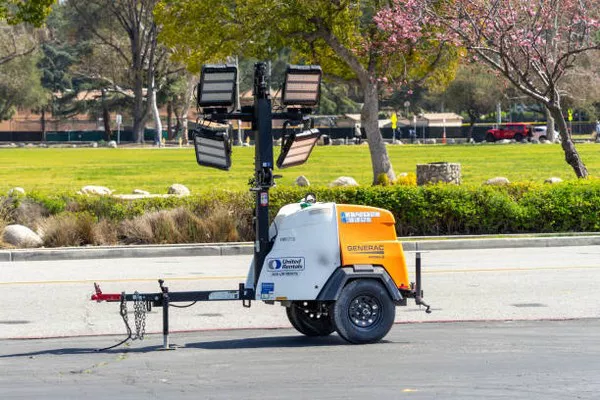Portable generators are invaluable tools, providing essential power in situations where the main power grid fails or is unavailable. Whether you’re dealing with a power outage, camping in the wilderness, or working on a construction site, these devices can deliver the electricity needed to keep critical systems operational. However, with the power they provide comes a significant responsibility: ensuring the safe operation of the generator. One of the most crucial aspects of generator safety is proper grounding. This article explores why grounding a portable generator is essential, covering the principles of electrical grounding, the risks associated with improper grounding, and practical steps for ensuring your generator is grounded correctly.
Understanding Electrical Grounding
Grounding, in electrical terms, refers to the practice of creating a direct physical connection between the electrical system of a device and the earth. This connection serves as a reference point for the voltage and provides a path for fault currents to safely dissipate into the ground, rather than through potentially dangerous routes.
For portable generators, grounding involves connecting the generator to the earth using a grounding rod or other suitable grounding system. This process ensures that if a fault occurs—such as a short circuit or leakage of current—any stray electricity is directed safely into the ground, reducing the risk of electrical shock, fire, or damage to connected equipment.
The Risks of Improper Grounding
Improper grounding of a portable generator can have severe consequences. Here are some of the primary risks associated with inadequate grounding:
Electrical Shock: Without proper grounding, a generator’s metal parts can become energized if a fault occurs. This poses a significant risk of electrical shock to anyone coming into contact with the generator or connected equipment. Even a seemingly minor electrical fault can lead to potentially lethal currents if the generator is not correctly grounded.
Fire Hazard: An ungrounded or improperly grounded generator increases the risk of electrical fires. Fault currents may not have a safe path to the ground, causing overheating of wires and components, which can lead to sparks or flames. In the worst-case scenario, this can result in a devastating fire that destroys property and endangers lives.
Damage to Equipment: Without proper grounding, sensitive electronic equipment connected to the generator can be damaged. Electrical surges and faults can cause malfunctions or permanent damage to devices, leading to costly repairs or replacements.
Inaccurate Readings: In some cases, improper grounding can cause erratic readings or false indications on electrical meters and monitors. This can lead to incorrect assessments of electrical conditions and potentially dangerous decisions.
Why Grounding is Crucial for Portable Generators
Safety Compliance: Electrical codes and standards, such as those outlined by the National Electrical Code (NEC) in the United States, require that generators be properly grounded. Compliance with these standards is not just a legal obligation but a critical measure for ensuring safety. Proper grounding helps meet these regulatory requirements and demonstrates a commitment to safe operation practices.
Protection Against Electrical Faults: Proper grounding provides a safe path for fault currents to flow into the earth, reducing the risk of electric shock and fire. It ensures that any faults are addressed quickly and safely, minimizing the potential for harm to people and property.
Improved Generator Performance: Proper grounding can also enhance the performance of the generator. A well-grounded generator operates more efficiently and reliably, as it reduces the risk of electrical imbalances and issues that can affect power output and stability.
Preventing Static Build-Up: Grounding helps to dissipate static electricity that may build up in the generator or connected equipment. Without grounding, this static charge can cause electrical discharges, which may interfere with sensitive electronic devices and systems.
How to Properly Ground a Portable Generator
Grounding a portable generator involves several key steps. Following these procedures ensures that the generator is safely and effectively grounded:
Select the Appropriate Grounding Equipment: Use a grounding rod or stake made of conductive material, such as copper or galvanized steel. The grounding rod should be long enough to be driven deeply into the ground to establish a solid connection. Additionally, use a grounding wire of adequate gauge to connect the generator to the grounding rod.
Install the Grounding Rod: Drive the grounding rod into the earth at a location close to the generator. The rod should be inserted into the ground to a depth specified by local electrical codes or standards. Ensure that the rod is securely embedded and provides a good electrical connection with the earth.
Connect the Grounding Wire: Attach one end of the grounding wire to the grounding rod and secure it tightly. The other end of the wire should be connected to the generator’s grounding terminal or grounding point, as specified in the generator’s user manual.
Check for Proper Connection: After installation, verify that the grounding system is functioning correctly. Use a multimeter or grounding tester to check the resistance between the generator and the grounding rod. The resistance should be low, indicating a good connection with the earth.
Regular Maintenance: Regularly inspect the grounding system to ensure it remains in good condition. Look for signs of corrosion, loose connections, or other issues that may affect the grounding effectiveness. Perform any necessary repairs or adjustments promptly.
See Also Is It OK to Run a TV on a Generator?
Conclusion
Grounding a portable generator is a fundamental aspect of safe and effective operation. By ensuring that your generator is properly grounded, you protect yourself, your equipment, and your property from the risks associated with electrical faults. Adhering to electrical codes and standards, following best practices for grounding, and conducting regular maintenance are essential steps in safeguarding against electrical hazards.
Investing time and effort into proper grounding practices not only enhances safety but also ensures reliable performance and longevity of your portable generator. In an age where portable generators are increasingly relied upon for various applications, understanding and implementing proper grounding techniques is crucial for anyone who operates or manages these valuable machines.


